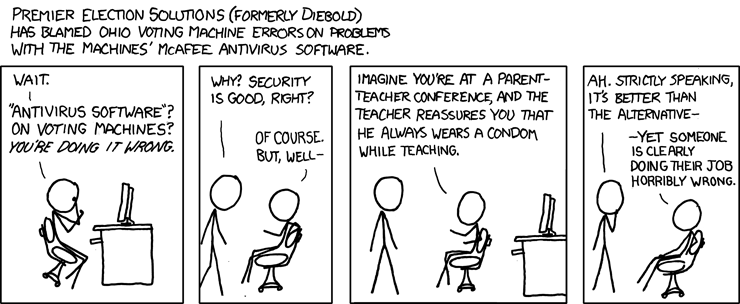from the nice-try,-redmond dept
A year and a half ago, we wrote about a bizarre antitrust lawsuit filed in Ohio state court by a small shopping search engine company most people haven't heard of called myTriggers. The
details were particularly odd. First, myTriggers set up a line of credit with Google to buy AdWords advertisements. Then... it didn't pay. The company claimed that a rejiggered algorithm made the ads much more expensive than it expected. But that doesn't explain why it racked up a $335,000 bill that it refused to pay. You can put limits on your spend. Either way, Google went to court in Ohio to try to collect on the money owed.... and bam, myTriggers suddenly used that as an excuse to launch a giant antitrust lawsuit against Google in Ohio. And, on top of that, this tiny company in Ohio that no one had heard of somehow magically hired Microsoft's chief antitrust counsel, Rick Rule, who does not come cheap. As Eric Goldman noted at the time:
Assuming myTriggers even has the money, writing a $335k check to Google (and I bet Google would have taken less!) is almost assuredly cheaper than paying three law firms to mount an antitrust assault on a $20B/year behemoth. Assuming that myTriggers wants to maximize profits, then either (1) myTriggers thinks its odds are good enough that it will win AND make enough money to pay the 7 lawyers on the counterclaim's signature page plus their teams, or (2) the law firms struck an unbelievably sweet deal on fees.
Or... you know, perhaps someone else was financing the whole thing. Google has been pretty vocal about the fact that it suspects Microsoft is behind this. But, the bigger issue is that the case itself is a joke. Google can set up its ad ranking algorithms however it likes, and while this case was purposely filed in response to Google's attempt to collect in Ohio, since whoever was behind it knew that would keep it in an Ohio state court rather than a federal court, it turns out that the court might not have been as clueless as those who filed the lawsuit expected. That's because
the case has been dismissed.
You can read the full ruling below. It consists of two key issues. First, Google tried to have the case dismissed under Section 230 of the CDA, claiming that as a service provider, it's not responsible for blocking or demoting ad content. This is a slightly different part of Section 230 than we usually discuss. This is the part that is designed to encourage companies to voluntarily filter "objectionable" content, and to not face liability for doing so. Here, the court ruled that ads don't qualify as objectionable content. The caselaw it relies on here is a little murky, but for the most part, this did seem like a bit of a stretch as an argument. So that wasn't very effective.
However, the case was still dismissed on a much bigger issue: which is that myTriggers failed to properly allege an antitrust violation. You would think that with all those big, fancy and expensive lawyers, they would have done a bit better. The problem, of course, is that to show antitrust you have to show harm to competitors. But, as the court notes, all myTriggers did was show (potential, possible) harm to myTriggers. In fact, part of myTriggers' own argument was to show how other vertical search engines performed much better in Google, which undermines myTriggers' argument:
"[T]o prove antitrust injury, the key inquiry is whether competition--not necessarily a competitor--suffered as a result of the challenged business practice."
Here, the counterclaim only alleges harm to myTriggers itself. In addition, myTriggers' counterclaims contain allegations that other competitive vertical search sites were indeed favored by Google. In paragraph 12 of its counterclaim, myTriggers alleges that "Google has entered these favorable agreements with Shopping.com, shopzilla.com, PriceGrabber.com, bizrate.com, NexTag.com * * *." Such an allegation undercuts myTriggers' argument that competition as a whole within the relevant market is being injured.
The court also notes that just because myTriggers thinks its been blacklisted, that's not a real claim. It's just a random guess by myTriggers.
There are a few other claims by myTriggers, and in each and every case, the court points out that it failed to establish a legitimate claim. It's a pretty complete rejection of the lawsuit, though you have to expect it'll be appealed/amended. This marks the second of a trio of such cases that has been tossed out by courts. One wonders if
grandstanding politicians using these silly claims as evidence of Google antitrust violations may start to quiet down.
Filed Under: ad placement, antitrust, cda, ohio, search
Companies: google, microsoft, mytriggers


